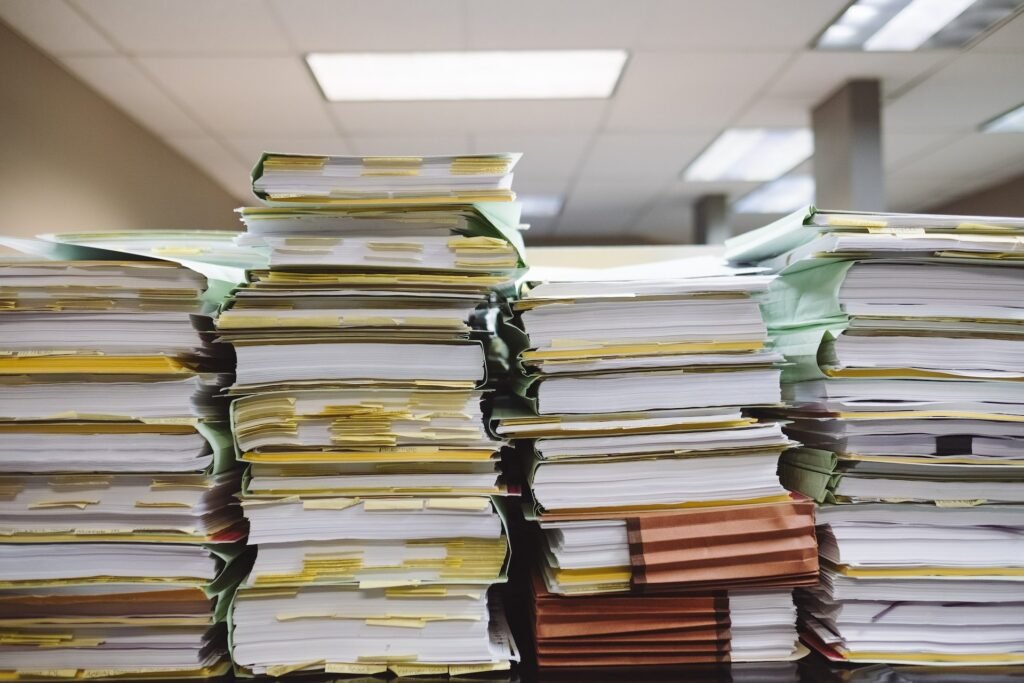
British businesses will be able to trade easier, faster and cheaper around the world thanks to new plans to remove needless paperwork and bureaucracy.
The Electronic Trade Documents Bill, expected to be introduced in Parliament today, will boost the UK’s international trade, already worth more than £1.4 trillion, and will reduce the estimated 28.5 billion paper trade documents printed and flown around the world daily.
Business-to-business documents such as bills of lading – a contract between parties involved in shipping goods – and bills of exchange – used to help importers and exporters complete transactions – currently have to be paper-based due to longstanding laws.
Under the Electronic Trade Documents Bill, digital trade documents will be put on the same legal footing as their paper-based equivalents to give UK business more choice and flexibility in how they trade.
The Bill will modernise old legislation such as the Bills of Exchange Act 1882 and the Carriage of Goods by Sea Act 1992.
Removing the legal obstacle to electronic versions of trade documents will significantly lower administration costs and is expected to provide a £1.14 billion boost to UK business over a ten-year period. It will reduce trade contract processing times from between seven and ten days to as little as 20 seconds, according to Trade Finance Global.
Digital Secretary Michelle Donelan said:
Our digital-first plans will make it easier for the country’s firms to buy and sell around the world – driving growth, supercharging our economy, cutting carbon and boosting productivity.
We want to support businesses by cutting red tape and allowing them to sell their goods and products globally without burdensome bureaucracy.
The UK was central to establishing the international trade system in the nineteenth century and we are once again leading the world to boost global trade in the twenty-first century.
The Digital Container Shipping Association estimates that if 50 per cent of the container shipping industry adopted electronic bills of lading, the collective global savings would be around £3.6 billion ($4 billion) per year. The International Chamber of Commerce estimates that small and medium businesses could see a 13 per cent increase in international business if trade is digitised.
Elsewhere the World Economic Forum (WEF) has found that digitising trade documents could potentially reduce global carbon emissions from logistics by as much as 12 per cent. Electronic trade documents also increase security and compliance by making it easier to trace records – for instance, through the use of blockchain and distributed ledger technology.
International trade still relies to a large extent on a special category of trade document which is dependent on being physically possessed by a person, and transferred over to another person.
The UK is a world leader in digital trade but currently the law does not recognise the possibility of possessing electronic documents, which prevents industries going fully paperless. This is costly and inefficient.
This Bill will allow businesses to choose to use electronic trade documents but does not force them to do so – allowing them to use practices and processes which work for them. It will set a vital precedent for all sectors and industries using English law as a basis for international contracts, including across the Commonwealth.
Commonly used documents in the UK for the trade in or transport of goods which the Bill will enable to become electronic include:
- bill of exchange
- promissory note
- bill of lading
- ship’s delivery order
- warehouse receipt
- mate’s receipt
- marine insurance policy
- cargo insurance certificate
The new rules will require trade documents in electronic form to meet certain criteria designed to replicate the key features of paper trade documents. This includes ensuring only one person, or parties acting jointly, can exercise exclusive control over it at any time, and removing the previous holder’s ability to exercise control over it once it has been transferred on.
The Bill will have its second reading when parliamentary time allows.
Chris Southworth, Secretary General, ICC United Kingdom said: “The publication of the Bill is a game changer with huge economic gains to be made for trade if companies digitalise systems and remove paper. Trade plays a huge role in the global economy so digitalisation is vital to establishing a more sustainable system.
“Real time transactional data will enable us to gather far richer, more insightful information to help us track and monitor the flow of sustainable goods and finance across the system. This is simply not possible if information is held on paper documents.”
Reference: THEBLOCK
